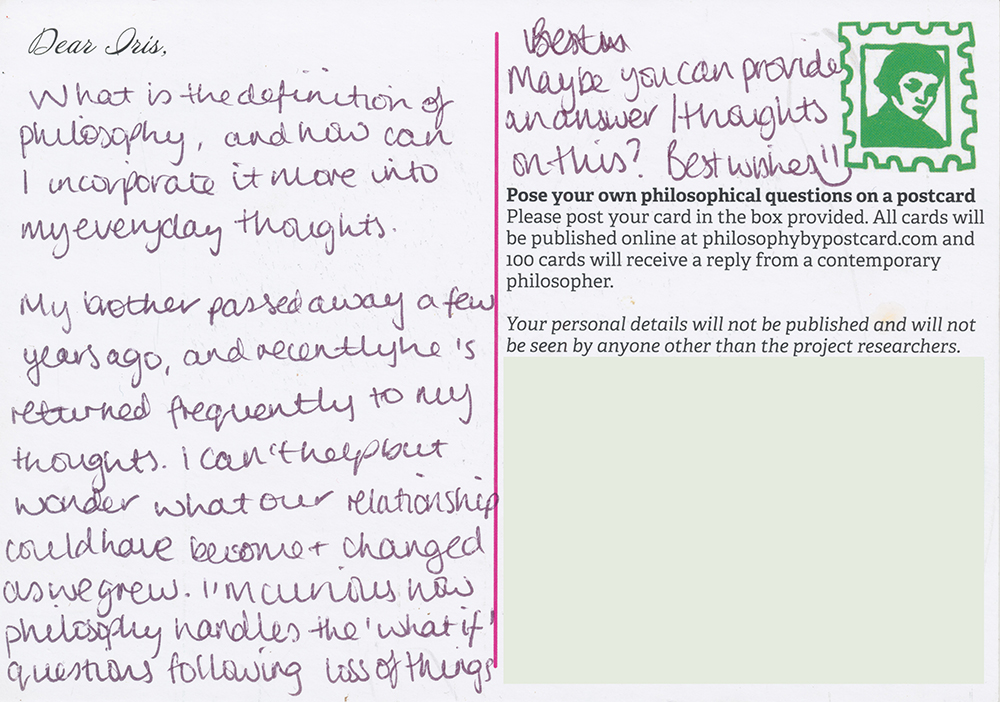What is the definition of philosophy, and how can I incorporate it more into my everyday thoughts. My brother passed away a few years ago, and recently he’s returned frequently to my thoughts. I can’t help but wonder what our relationship could have become + changed as we grew. I’m curious how philosophy handles the ‘what if’ questions following loss of things. Maybe you can provide an answer/thoughts on this?
Best wishes =)
Dear Kristina,
I'm afraid philosophy in general may not offer a satisfying answer to this. I am sorry for your loss. It is a testament to your honesty and clarity that you now consider your brother not just as he was, but as he might have grown and changed, and recognising changes not only in him but also in the shifting relationship between you as part of that.
Iris Murdoch, I think, taught us this much: That the exercise of seeing another person clearly and justly and lovingly is an ongoing moral task; and it is a form of transcending or seeing past the absorbing egoistic desires that normally filter our experience. Grief and pain can be powerfully absorbing. But working to see the person lost as honestly and truly as possible can be a way of honouring that grief without allowing it to become consuming and self-involved. If philosophy in general, and Iris Murdoch in particular, can teach us something about these "what if?" - questions, it is that the process itself is what matters. We will not come to an answer about what might have been, and one of the moral demands made upon us is that we let go of our craving in this respect. The process of seeing clearly - the process of setting aside ego sufficiently to do this - is always an ongoing one, and we must resist the desire to close it down out of a need to have as determinate certainty to hold in our hands. The process is one that can pull us out of ourselves while returning us to all the concrete particularly of the world.
With Best Wishes, Amber
Amber Carpenter
Yale-NUS, Singapore
Iris Murdoch is modern Platonism—alive to how moral thought is saturated with metaphysical thinking, her Sovereignty of Good is a gripping articulation of the vital orientation in moral thought Plato offers. The novels’ recognise an affinity here with a Buddhist outlook. Suffusing her novels as well as her philosophical work is a critical moral sensitivity that is never censorious. Sheer gratitude to Murdoch for giving us the moral life back in all its richness, and allowing it to breathe.



